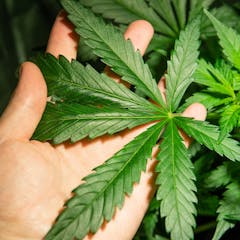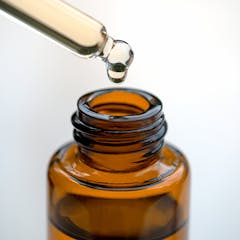
Articles on LSD
Displaying 1 - 20 of 32 articles

Having long been considered to have ‘no accepted medical use’, psychedelics are finally being recognised as being beneficial for treating a range of mental health disorders.

We still don’t know a lot about how the networks of cells in the brain enable conscious experience.

The problem with prodrugs is we don’t know how big the problem is because they are so hard to identify.

The story of Anne Hamilton-Byrne’s cult The Family has been told in a non-fiction book and documentary, a novel, In the Clearing, and now a Disney+ series. What can stories like this teach us?

Receiving a cancer diagnosis and undergoing cancer treatment can be a traumatizing experience. Psychedelics like LSD, psilocybin and MDMA could help alleviate symptoms from cancer-related PTSD.

While ‘The Last of Us’ is a dramatic projection of a deadly fungal outbreak, it is based, if not in reality, in logic. And it’s a reminder that fungal infections are growing more resistant.

The early research suggests the drugs might be effective for some conditions. But scientists have safety concerns.

A 1971 law, and the parallel growth of an illegal economy, shaped South Africa’s unique cannabis landscape.

Alberta’s new policy on psychedelic-assisted therapy for mental illness may set a precedent that moves Canadians one step closer to accepting psychedelics as medicinal substances.

Society has very different attitudes to near-death experiences and psychedelics.

Growing interest in psychedelics has spurred new research decades after hallucinogenics were tested in Saskatchewan in the 1950s. And an unassuming common fish is proving a useful test subject.

Drugs like MDMA, ketamine, LSD and psylocibin may help heal the wounds of trauma - but more research is needed.

In a new research study, more than 900 people from around the world explain the challenges and benefits of microdosing LSD and psilocybin-containing mushrooms.

Popular accounts of the effects of microdosing don’t quite match the experience of long-term microdosers, according to this new research.

Most people assume drugs are illegal because they are dangerous, but the reasons aren’t related to their relative risk or harm.

According to new research, individuals who take small regular doses of psychedelics such as LSD and psilocybin mushrooms score higher on mental health, well-being and creativity.

To know the real promise of psychedelic substances like LSD, mushrooms and MDMA, researchers must embrace the principles and practise of ‘open science.’

Once associated with mind-control experiments and counter-cultural defiance, psychedelics now show great promise for mental health treatments and may prompt a re-evaluation of the scientific method.

Psychedelic drugs have inspired great songs and works of art. But they may also have potential for treating disease like depression and PTSD by helping to regrow damaged regions of the brain.

LSD is far safer than alcohol or tobacco, so why don’t drug laws reflect it?
